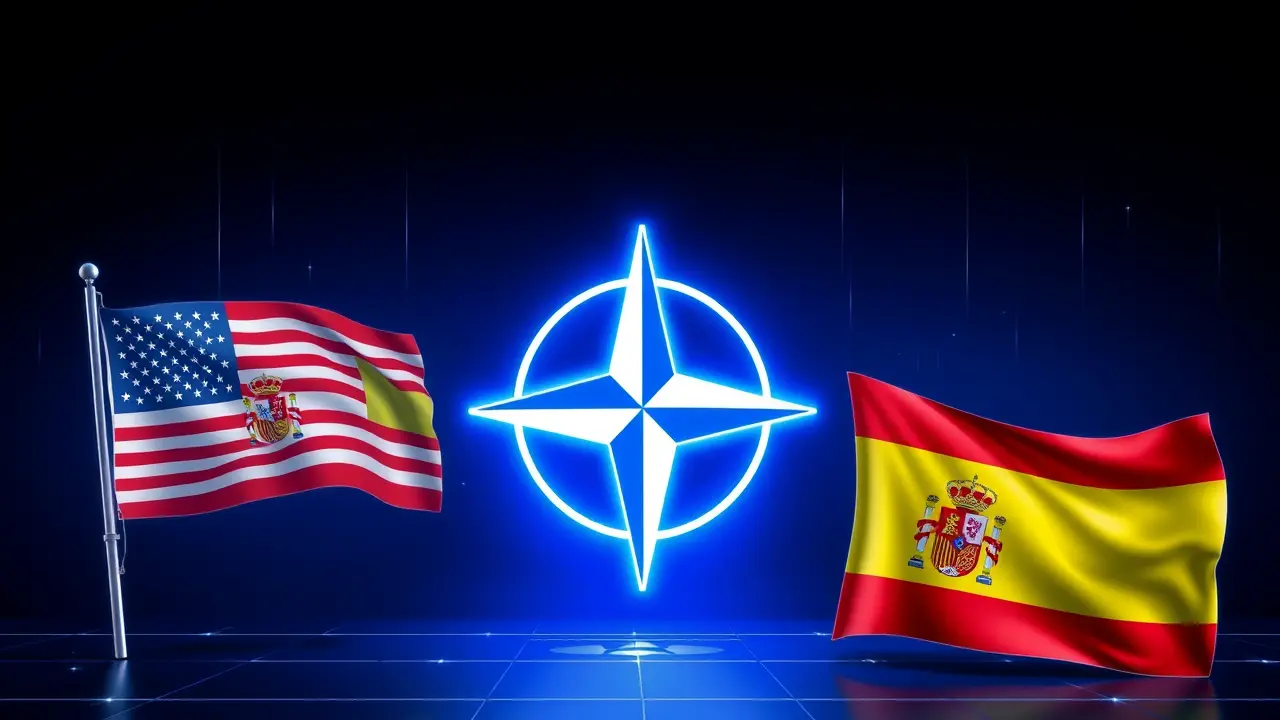Trump Suggests Spain's Expulsion from NATO Over Spending
The diplomatic clash between the United States and Spain, which erupted in June ahead of the pivotal NATO summit, represents more than a mere policy disagreement; it is a profound stress test for the Atlantic Alliance's foundational principles, echoing historical fissures that have threatened its cohesion since the days of Churchill. The immediate catalyst was Spain's public declaration, delivered just days before leaders were to convene in The Hague, that it would categorically reject President Trump's demands for member nations to elevate their defence spending to a staggering 5% of GDP—a figure that dwarfs the existing 2% guideline and sent shockwaves through capitals from Berlin to Ankara.This was not an isolated incident but the latest and most severe escalation in a long-standing American grievance, one that harks back to the Cold War-era tensions between Washington and European partners perceived as free-riding on US security guarantees. The Spanish position, articulated with a firmness that surprised many analysts, underscores a deep-seated resistance within several European Union nations to what is increasingly framed as American ultimatum diplomacy, a transactional approach to collective security that many fear could unravel seven decades of strategic partnership.To fully grasp the gravity of this confrontation, one must consider the domestic political landscapes in both Madrid and Washington; for Prime Minister Pedro Sánchez, acquiescing to such a demand would be politically untenable, forcing brutal cuts to Spain's robust social welfare programs, while for President Trump, the issue is a cornerstone of his 'America First' platform, a tangible metric to present to his base as proof of his tough negotiation stance with allies. The suggestion, whether rhetorical or serious, that Spain could face expulsion from NATO is a doctrinal earthquake, a threat with no clear procedural precedent in the alliance's history and one that, if pursued, would likely fracture the very unity it purports to enforce.Experts from the Center for Strategic and International Studies point to the dangerous precedent this sets, potentially creating a multi-tiered alliance where security commitments are conditional on immediate financial contributions, thereby undermining the mutual defence guarantee of Article 5 that has been the bedrock of Euro-Atlantic stability. The broader context involves a recalibrating global order, where a resurgent Russia watches such internal discord with keen interest, and where European powers, particularly France under President Macron, have accelerated calls for 'strategic autonomy' as a hedge against American unpredictability.The consequences of this standoff extend far beyond military budgets; they touch upon the very soul of the transatlantic relationship, challenging whether it is bound by shared democratic values and strategic interests or has been reduced to a ledger of financial transactions. As the summit concluded with no resolution, the lingering question for diplomats and historians alike is whether this episode will be remembered as a temporary rupture or the first act in the gradual dissolution of the most successful defensive pact in modern history, a sobering parallel to the political miscalculations that have preceded other great power realignments.
It’s quiet here...Start the conversation by leaving the first comment.
© 2025 Outpoll Service LTD. All rights reserved.
